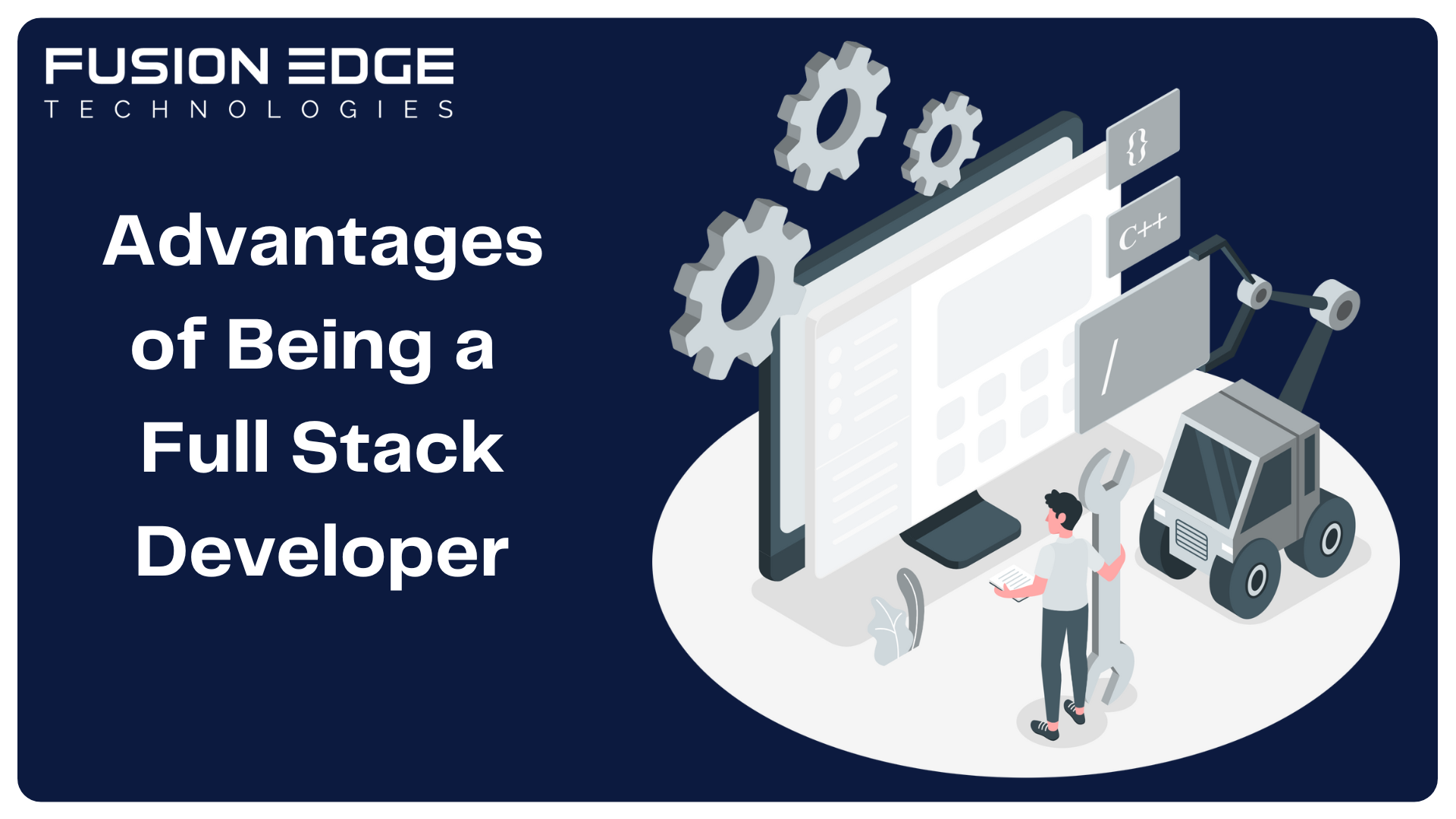Advantages of Being a Full Stack Developer
The demand for full stack developers has skyrocketed in recent years, making it one of the most sought-after roles in the tech industry. But what makes this career so appealing? In this blog, we will explore the advantages of being a full stack developer and why it is a rewarding career choice for aspiring tech professionals.

What is a Full Stack Developer?
A full stack developer is a professional skilled in both frontend and backend development. They can handle the entire web development process, including designing user interfaces, writing server-side code, managing databases, and integrating APIs. This comprehensive expertise allows them to create fully functional web applications from start to finish.
Key Responsibilities of a Full Stack Developer
Frontend Development: Crafting user interfaces using technologies like HTML, CSS, JavaScript, and frameworks such as React or Angular.
Backend Development: Writing server-side logic using programming languages like Python, Ruby, PHP, or Java.
Database Management: Working with databases like MySQL, MongoDB, or PostgreSQL to store and retrieve data efficiently.
Version Control: Utilizing tools like Git and GitHub for collaborative coding and version management.
API Integration: Connecting different software components through RESTful or GraphQL APIs.
The Advantages of Being a Full Stack Developer
1. High Demand in the Job Market
Full stack developers are highly sought after because they offer versatility and cost-effectiveness to companies. Their ability to work on both frontend and backend reduces the need to hire separate specialists, making them valuable assets in startups, enterprises, and freelance projects. According to recent job market trends, full stack development skills can significantly enhance employability.
2. Lucrative Salary Opportunities
Given their extensive skill set, full stack developers often command higher salaries compared to other developers. In many countries, they rank among the top-paid tech professionals. For example:
United States: The average salary for a full stack developer is $100,000 annually.
United Kingdom: Full stack developers earn an average of £50,000 per year.
3. Diverse Career Options
Full stack developers have the flexibility to work across various domains, including:
Startups: Where they can take ownership of the entire development process.
Large Enterprises: Working on specific features or managing teams.
Freelance Opportunities: Providing end-to-end development services to clients worldwide.
4. Comprehensive Understanding of Web Development
Being a full stack developer provides a holistic view of the web development lifecycle. This knowledge is invaluable for:
Troubleshooting issues effectively.
Collaborating with team members.
Innovating and improving existing systems.
5. Improved Problem-Solving Skills
Full stack developers encounter challenges across various technologies. This exposure helps them develop strong analytical and problem-solving skills, which are critical for crafting innovative solutions.
6. Adaptability to Technological Advancements
Full stack developers are well-positioned to adapt to new technologies and trends. Their broad knowledge base allows them to pick up new tools, frameworks, and methodologies quickly, ensuring they remain relevant in a fast-paced industry.
7. Opportunities for Entrepreneurship
With the ability to build complete web applications independently, full stack developers are ideal candidates for entrepreneurial ventures. They can:
Prototype ideas without needing a large team.
Launch MVPs (Minimum Viable Products) quickly.
Reduce development costs significantly.
8. Enhanced Creativity
Working on both the frontend and backend allows full stack developers to bridge the gap between user experience and functionality. This dual perspective enhances their creativity and enables them to deliver seamless and intuitive solutions.
9. Versatility Across Industries
From e-commerce to healthcare, finance to entertainment, full stack developers are needed across various industries. This versatility ensures a wide range of opportunities, making the career stable and resilient to market changes.
10. Opportunity to Lead Projects
Full stack developers often take on leadership roles, thanks to their understanding of the entire development process. They can guide teams, oversee project timelines, and ensure successful project completion.
Skills Required to Become a Full Stack Developer
To enjoy the benefits of being a full stack developer, acquiring the right skills is crucial. Here are some key competencies:
Frontend Skills:
HTML, CSS, and JavaScript
Frameworks: React, Angular, Vue.js
Responsive Design Principles
Backend Skills:
Programming Languages: Node.js, Python, Ruby, PHP
Frameworks: Django, Express, Laravel
Server Management
Database Management:
Relational Databases: MySQL, PostgreSQL
NoSQL Databases: MongoDB, Cassandra
Other Important Skills:
Version Control: Git, GitHub
API Integration: RESTful APIs, GraphQL
Cloud Services: AWS, Azure, Google Cloud
Challenges Faced by Full Stack Developers
While the advantages are numerous, full stack developers may face some challenges, such as:
Keeping Up with Rapidly Changing Technologies: Continuous learning is essential to stay updated.
Managing Workload: Handling both frontend and backend tasks can be overwhelming.
Balancing Specialization and Generalization: Striking the right balance between being a jack-of-all-trades and a master of one can be tricky.
How to Become a Full Stack Developer
1. Learn the Fundamentals
Start by mastering the basics of web development, including HTML, CSS, and JavaScript. These are the building blocks of any web application.
2. Choose Your Tech Stack
Decide on a technology stack based on your interests and market demand. Popular stacks include:
MERN (MongoDB, Express, React, Node.js)
MEAN (MongoDB, Express, Angular, Node.js)
LAMP (Linux, Apache, MySQL, PHP)
3. Build Projects
Hands-on experience is crucial. Build projects that include both frontend and backend components to enhance your skills and portfolio.
4. Stay Updated
Follow industry blogs, attend webinars, and take online courses to keep up with the latest trends and tools.
5. Network with Professionals
Join developer communities, attend meetups, and connect with other professionals to learn and grow.
Future of Full Stack Development
The future of full stack development looks promising. With advancements in AI, IoT, and cloud computing, the role of full stack developers will continue to evolve. Companies will rely on these versatile professionals to create scalable, efficient, and innovative solutions.

